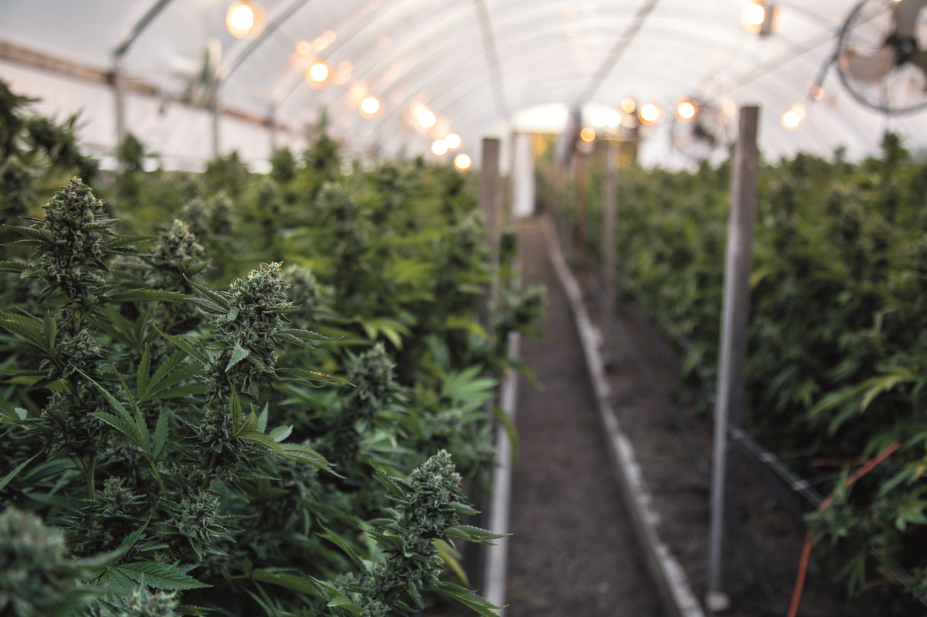
Shutterstock.com
Prescriptions for medical cannabis will probably only be available for “very few people in England”, according to NHS guidance for patients, published on 1 November 2018.
The guidance explains that it is only likely to be prescribed for children with rare, severe forms of epilepsy, adults with vomiting or nausea caused by chemotherapy, and adults with muscle spasticity caused by multiple sclerosis.
The Department of Health and Social Care and NHS England have also written to all NHS staff to tell them that cannabis-based products for medical use should only be prescribed where there is clear published evidence, where there is clinical need that cannot be met by a licensed medicine and where established treatment options have been exhausted.
The letter, published on 31 October 2018 — the day before regulations that allow cannabis to be prescribed for medical use came into force — was signed by Keith Ridge, the chief pharmaceutical officer for England, Dame Sally Davies, the chief medical officer for England, and Stephen Powis, medical director at NHS England.
The letter goes on to say that prescribers should only prescribe a product “where they are certain of its content and quality”.
A spokesperson for the Pharmaceutical Services Negotiating Committee (PSNC) told The Pharmaceutical Journal that it does not expect community pharmacies to receive many prescriptions for medical cannabis.
The PSNC spokesperson said that pharmacy teams should be able to handle any such prescriptions “in a similar manner to those for any other drug”.
“If the product cannot be sourced by any of the usual suppliers, the pharmacy may contact a specials supplier,” added the PSNC spokesperson.
If they cannot find a specials supplier who is able to fill the order, the PSNC spokesperson said, the pharmacy team should “get in touch with the prescriber to try and resolve the situation, which may require them to advise the patient to obtain the medicine via another route”.
The Medicines and Healthcare products Regulatory Agency has published guidance on the supply of unlicensed cannabis-based products for medical use. Under the new regulations, these products have been moved into Schedule 2 of the Misuse of Drugs Regulations 2001, meaning that doctors listed on the specialist register of the General Medical Council can legally prescribe the medicines.
The MHRA guidance includes a checklist for pharmacies that are dispensing cannabis-based products, which includes ensuring that the decision to prescribe was made by a doctor registered on the specialist register. The checklist states that pharmacists “should ensure before the product is ordered and administered that the prescriber is fully aware of the unlicensed status of the product”. It also states that anyone who sells or supplies unlicensed medical cannabis-derived products must keep a five-year record of the product, which must include its tetrahydrocannabinol and cannabidiol content (and ratio, where relevant).
The guidance notes that specialist importers of cannabis-based medical products must notify the MHRA at least 28 days before the date of the intended import.
Other bodies have released their own guidance in response to the legislative change.
The Royal College of Physicians and the Royal College of Radiologists, in liaison with the Faculty of Pain Medicine of the Royal College of Anaesthetists, has recommended against the use of medical cannabis for chronic pain, but says it should “remain an option for those who have failed standard therapies” for chemotherapy-induced nausea and vomiting.
The British Paediatric Neurology Association’s interim guidance on cannabisâ€based products for medical use in children and young people with epilepsy advises that nonâ€licensed cannabisâ€based products for medical use should be used “as a treatment of last resort” for children who meet certain criteria.
The National Institute for Health and Care Excellence is expected to publish formal guidelines by October 2019.
The Royal Pharmaceutical Society (RPS) has welcomed the change in legislation.
“This is a great step forward for patients whose conditions will be improved by better access to cannabis-based medicinal products”, said Ash Soni, president of the RPS. “The move will also make it easier for research into these products to take place.”


